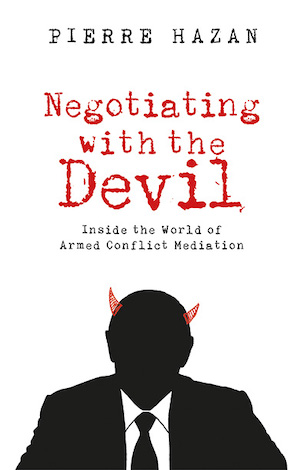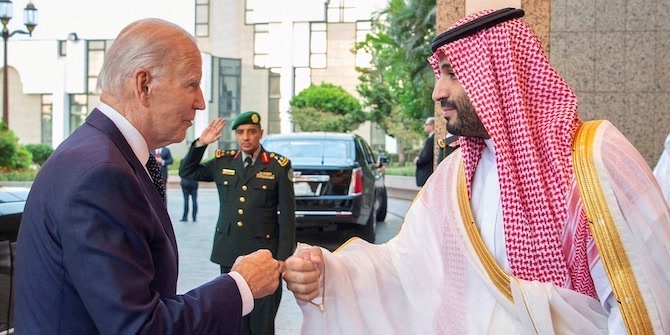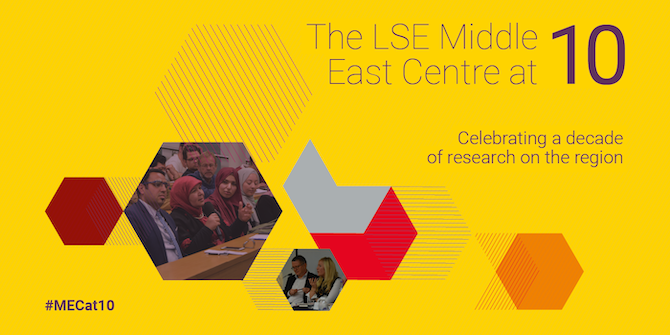by Jenifer Vaughan
The fog of war, sowing confusion and restricting viable options, brings forth complex ethical quandaries when balancing the imperative to uphold moral and legal principles. Those in pursuit of noble endeavours can at times be compelled to navigate a fine line between altruism and involvement in grave acts of malfeasance.
For example, confronted with the dilemma of safeguarding lives during conflict, decision makers might have to grapple with the ethical predicaments of evacuating populations. While such actions may ostensibly align with the commendable goal of saving lives, there exists a precarious threshold that, if crossed, risks complicity in violating international humanitarian law – ethnic cleansing through forced deportation.
In Negotiating with The Devil: Inside the World of Armed Conflict, Pierre Hazan (in collaboration with Emmanuelle Hazan, and translated from the 2023 French edition by Susan Mutti) explores these grey zones framing the evolving role of mediators over the past decades while offering readers a nuanced exploration of significant shifts in the global geopolitical landscape.
The initial section of the book looks at the mutating definitions of malevolence – the portrayal of evil – in the West following the end of the Cold War, analysing three periods: the 1990s (focusing on international justice during periods of conflict); the post-9/11 emergence of the ‘war on terror’; and the recent shift in the mediation landscape – due to the diminishing dominance of the West – from the Syrian conflict to the war in Ukraine.
The inflexibility of the anti-terrorism structures established in the aftermath of the September 11 attacks proved markedly counterproductive. Hazan successfully argues in one of the more compelling segments of the book that antiterrorism measures posed formidable constraints on mediation efforts. The narrative brings to light a stark, oversimplified perspective on conflicts, where blame for violence is exclusively attributed to ‘terrorists,’ neglecting the intricate nature of these conflicts and undermining the efficacy of more nuanced peace-building approaches. As Hazan remarks, the rise of private diplomacy, despite its inherent constraints, was an implicit acknowledgement of this failure, and its rectification would be a time-consuming process. In the interim, numerous human lives were sacrificed.
It is essential to uphold a moral framework, especially in complex situations. This forms the central theme of the book’s second section, which explores the dynamics of inclusion/exclusion related to war criminals and ‘terrorists’. Hazan first investigates the internal discussions within the International Committee of the Red Cross during the Second World War regarding the interpretation of neutrality. With Bosnia-Herzegovina, Hazan examines how the United Nations moved away from the notion of neutrality in the wake of the Srebrenica atrocities. Finally, attention is paid to ethical predicaments faced by mediators in Syria as they strived to safeguard populations, and the continuing discourse surrounding mediation involving armed jihadist factions in the Sahel region. The pursuit of a less detrimental option can become a strategic and ethical challenge; in the theatre of war, the fine line between virtue and vice is often scarcely discernible.
In its totality, the book persuasively argues that choosing the lesser of two evils in conflict mediation can be a confounding decision, often driven by the pragmatism of achieving a more favourable outcome; but negotiators grapple with uncertainty, making choices with an awareness that the consequences are certainly not guaranteed.
The narrative occasionally tends towards somewhat unnecessary prelude and recapitulation, a minor drawback that is overshadowed by the overall strength of the prose – the standout feature of the book, making Hazan’s publication, enriched by a plethora of anecdotes and historical examples, an engaging and accessible read. And given the current surge in global conflicts and the persistent struggle for peace, the book is a timely and relevant exploration of these pressing issues.
[To read more on this and everything Middle East, the LSE Middle East Centre Library is now open for browsing and borrowing for LSE students and staff. For more information, please visit the MEC Library page.]







